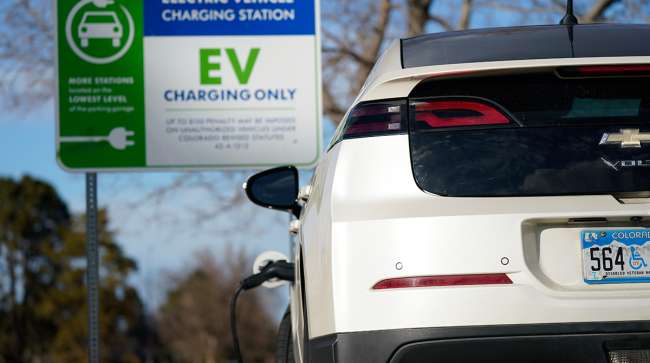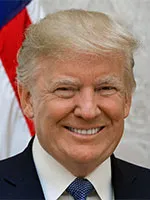Bloomberg News
Trump Targets Auto Mileage Rules He Blasted as ‘EV Mandate'

[Stay on top of transportation news: Get TTNews in your inbox.]
President-elect Donald Trump’s incoming administration is looking to slash fuel-efficiency requirements for new cars and light trucks as part of plans to unwind Biden policies he has blasted as an “EV mandate,” according to people familiar with the matter.
Trump advisers plan to re-examine fuel economy requirements that were finalized in June, said the people, who asked not to be identified because they weren’t authorized to speak publicly.
They’re also targeting related standards imposed by the U.S. Environmental Protection Agency that limit tailpipe emissions of carbon dioxide and smog-forming compounds, they said.
The plan takes aim at a signature collection of President Joe Biden’s policies to cut greenhouse gas emissions and push the auto industry toward electrification.

Trump
Although the policies don’t explicitly order electric vehicles, critics argue the rules are so strict that they act as a de facto requirement to sell EVs in large numbers, especially in later years.
Trump repeatedly vowed during his campaign to “obliterate” those Biden policies. Trump’s transition team didn’t respond to a request for comment.
The efficiency rules requires carmakers to make their vehicles run on less fuel, with annual improvements toward a fleet average of about 50 miles per gallon by the early 2030s. The related EPA rule sets yearly limits on pollutants from cars and light trucks, with a cap on carbon dioxide emissions in model year 2032 that’s just half of what’s allowed in 2027.
Want more news? Listen to today's daily briefing above or go here for more info
Automakers have invested billions of dollars in new EV models and factories to meet the requirements — and take advantage of generous EV subsidies available under the Inflation Reduction Act.
However, many carmakers have dialed back ambitious electric vehicle plans amid a slowdown in demand and steep losses on plug-in vehicle sales. Some industry executives have criticized the policies for getting ahead of consumer appetite for EVs.
Unwinding the requirements would echo Trump’s first term in office, when his agencies significantly weakened plans charted by President Barack Obama to boost new cars to a fleet average of more than 50 mpg by 2025. Trump replaced those rules with regulations that called for nominal improvements in fuel economy annually, ending at about 39 mpg by 2026.




